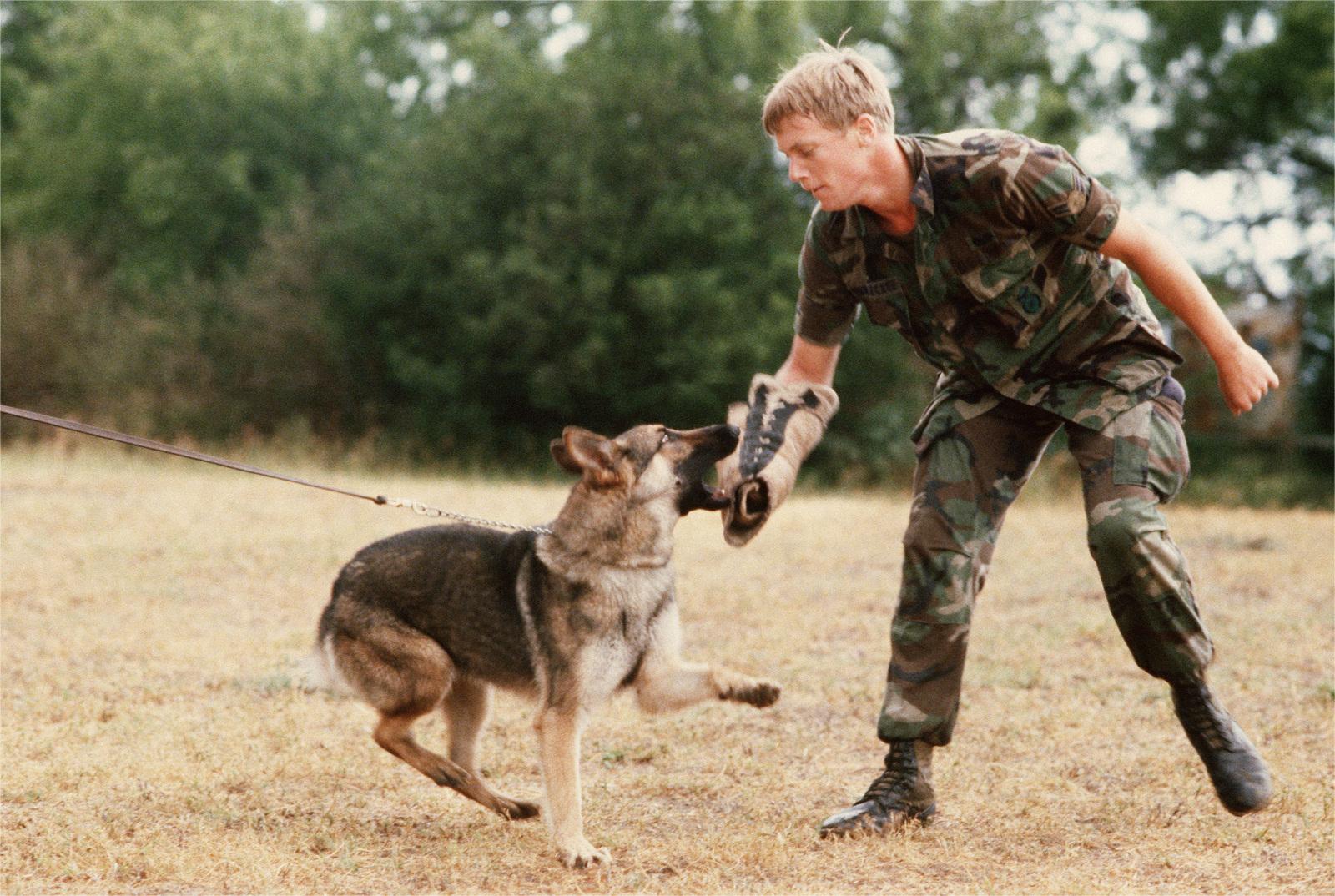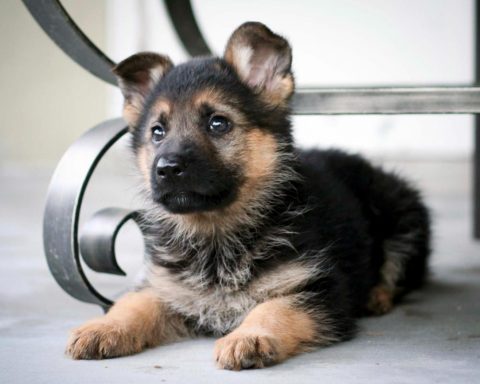A purebred German Shepherd is indeed not easy, if only as a general pet to raise it is far from enough, to fully demonstrate the charm and instinct of the German Shepherd, the key lies in the dog positive, effective training.
Never think that this kind of dog is smart, tame, and on the surface does not bite or scratch on it.
In fact, the systematic and formalized training of the German Shepherd has a history of 100 years, people have accumulated a lot of training experience, if the dog owner understands this knowledge will further increase the pleasure of raising this large dog.
The highest level of dog breeding is to achieve a high degree of harmony between humans and dogs, and formal, systematic defense training for dogs is a sure way to reach this level.
What is “defense training” Many people have a misunderstanding of dog defense training, thinking that a dog trained in defense is more fierce and dangerous than an untrained dog, or that letting a dog undergo defense training is to make the dog more fierce and dangerous, which is completely wrong.
In fact, “defense” means to avoid and stop an attack, which is the opposite of being attacked.
A defense-trained German Shepherd will know when to bite and when not to bite; it will be able to tell the difference between an innocent pedestrian or child and a thug wielding a big stick.
This type of dog can absolutely obey its owner’s commands and follow his instructions in any situation. In addition, the German Shepherd’s defense training is still the most important part of its breeding system.
In Germany, it is unthinkable to breed a dog without defense training, and the minimum requirement for a breeding dog is to have passed the first level of defense or the herding test, plus meet some other basic requirements in the breeding rules.
In short, only dogs that have been trained and tested to meet the breeding requirements can be bred, thus guaranteeing the healthy development of the German Shepherd.
The origin of defensive trainingDefensive training was formed in Germany around 1900, when the founder of the German Kennel Club, Mr. Stephanitz, had in mind only the optimization of the breed, but he soon tried to develop a defensive training program applicable to police requirements.
In 1903, the German Kennel Club conducted its first official working dog training. These experiments soon became the standard of evaluation for breeders of police dogs and other types of working dogs, and soon led to the development of a formal German Shepherd training system, which is now known as “defense training”.
Since then, Germany and many parts of the world have derived from the concept of “defense training” a number of other new dog sports clubs and related organizations, the purpose of which is to train dogs in special working subjects in order to identify and select those with the best character (temperament) for breeding.
Elements of Defense Training Defense training usually consists of three parts: walking on a designated route, obedience by word of mouth, and basic defense techniques.
Generally speaking, the character and mental stability, endurance, physical coordination, olfactory sensitivity, eagerness to work and courage, as well as the ability to be trained can be seen through defense training to determine whether a working dog is good or bad. In addition, through defense training and testing, a conclusion can be made about the overall quality of the dog as to whether the dog has the conditions to become a breeder.
As a sports program, defense training undoubtedly gives the dog owner a special opportunity to train the dog, in the training of the owner’s training ability and the ability of the dog to perform training will be fully reflected, people and dogs through such contact not only deepen the friendship, but also to further develop and strengthen the dog’s interest in the work.
As a matter of fact, many people abroad, including people of different ages and backgrounds, are very fond of, and even love this sport, and even take it as a hobby, often the whole family is involved in it, and performances and competitions are also held when conditions permit.



